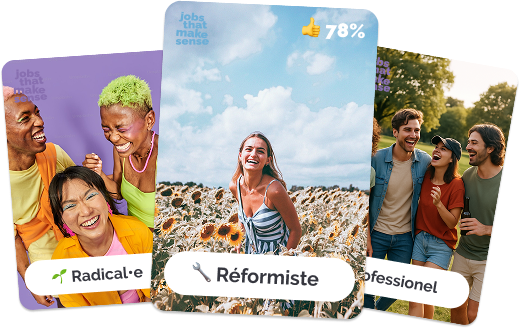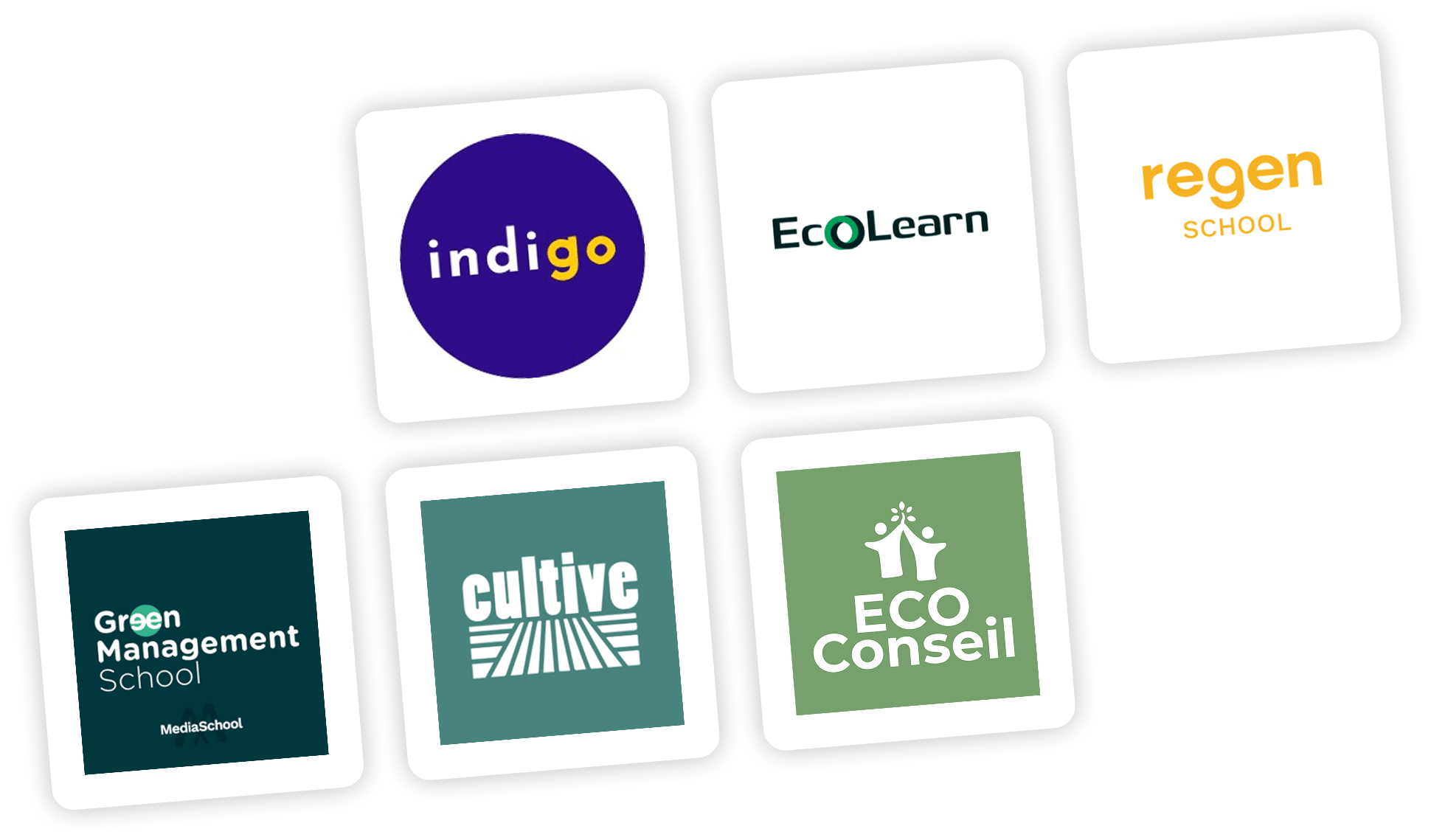Marie, future engineer - "I wanted to mix hard sciences and social sciences."
As an engineer, there is sometimes this realization, even regret, of being solely an agent of "techno-solutionism". Olivier Lefebvre, author of the book Lettre aux ingénieurs qui doutent, expressed in this interview conducted for jobs that makesense, this frustration of being focused on the technical, without stepping back from the societal dimensions of one's profession. Basically, acting, without understanding the"why do we do what we do?" For Marie, right from engineering school, she needed to have a curriculum that integrated the social sciences. It was through a double degree that she managed to find this balance. This gave her the skills that would enable her to move into professions combining technology with social and environmental issues. She talks about it...
High school, preparatory school, engineering school
In high school, Marie liked science and got good grades. Two good reasons to continue in this direction! Preparing for art school entrance exams after high school was also something she considered, but didn't dare. "I was too afraid of precariousness and I didn't have any examples around me to reassure me and commit myself to this path. So I did a maths pre-prep, with conviction." When she entered pre-prep, she knew it was to go on to engineering school and had a very specific curriculum idea in mind:"integrate an engineering school and take a double degree with Sciences Po at the same time." She points out that her choice right from the start of her studies was to "mix hard sciences and social sciences." After preparatory school, she entered the École Nationale des Ponts et Chaussées, in Paris. At this school, she initially followed a generalist curriculum consisting mainly of math and physics courses, before specializing in economics. In her final year of study, she benefited from a double degree agreement between her engineering school and Sciences Po, and took a Master's degree in public policy;
3 Stimulating internships in the public sector
At school, she did a few internships: one at Arcep, an independent administrative authority. "I worked on the implementation of a public policy aimed at deploying fiber in less dense areas. I was doing day-to-day implementation and working on European negotiations at the same time."
Then, for 6 months, she joined France Stratégie, a department of the French Prime Minister, responsible for the prospective and evaluation of public policies."I'm working on several subjects, including the Soutenabilités seminar." This long-term seminar aimed to rethink public action through the prism of strong sustainability, i.e. considering that a loss of natural capital (all natural resources) cannot be compensated for by an increase in economic capital. In preparing the first events of the seminar, she met researchers and experts from a wide range of fascinating disciplines!
And finally, her last internship was at the DGE, the Direction Générale des Entreprises. Within this department of the French public administration, she is in charge of sustainable fashion, and in particular of supporting the French flax and hemp industry.
A new position at the French Office for Biodiversity
Marie now works for the OFB, the French Office for Biodiversity. She is the administrative and financial manager of a European project in which the OFB is involved. "What's cool is that when you're an engineer, you like to solve problems, and here you have a big "problem" to solve, which is to use a European grant earmarked for a very ambitious project while respecting internal administrative rules and the requirements of the European Commission. For Marie, setting up all the procedures, monitoring and information flows while respecting all the constraints and explaining the procedures to all the agents, departments and divisions involved "is a very cool challenge!"
What the dual political science x engineering school curriculum has brought him
#1 Open-mindedness
#2 Taking a step back: "When I do this or that, I'll look at the different visions of different authors, to position myself. What does what I'm doing really mean? It's a reflex that Sciences Po gave me. And if I don't have the time to go and explore theories, I at least ask myself questions."
#3 Taking externalities into account in our actions: "I also ask myself what impact technology has on society or the environment, and how we can imagine truly desirable technologies for the future".
"For the moment we've done these studies, we need to make use of them, we're trying to do missions that will have the greatest societal impact possible."
Make the greatest possible impact on society
When asked about Marie's sense of impact in her work, she admits that sometimes slowness can be frustrating:"when I was working in sustainable fashion, sometimes it was a bit frustrating to see that things weren't going fast enough, I wanted to be in the Do. But that was the game. Any progress was already a victory" At OFB, in any case, she doesn't feel in dissonance. When she talks to some of her engineering buddies, what they say to each other is: "for now we've done our studies here, we need to make use of them, we're trying to do missions that will have the greatest possible societal impact, and if one day, we feel it's no longer working well enough, we'll do something else." In fact, many of them have chosen this course of study to make things or imagine how they are made, and could one day have a more concrete job in "doing it".
And then what?
Marie has a few ideas in mind for her next professional adventures: "I'm also interested in implementing more sustainable practices in the cultural sector, as I do a bit of theater. Otherwise, environmental consulting for companies that really want to try to do better." Beyond purely intellectual professions, what she misses today is making things:"Even if I sew at home when I get home, it's not enough. Mixing intellectual and manual work would be ideal. "Having divided up work so much, it's completely uncorrelated with how we function as humans I think" she says. Being on screens less often would also be more enjoyable for her. Who knows? Perhaps she'll follow in the footsteps of Martin, mixing two professional activities ?
Taking action
👉 Find all job offers, testimonials, training and inspiring articles on ingesdavenir.org
👉 Training in the professions of ecological and social transition
Further information
👉 Martin, ingé d'avenir - Low tech association manager and part-time employee.
👉 Olivier Lefebvre - "il est difficile de sortir de sa cage dorée"
👉 Bastien, future engineer - "I can't see myself saying I've done nothing"



